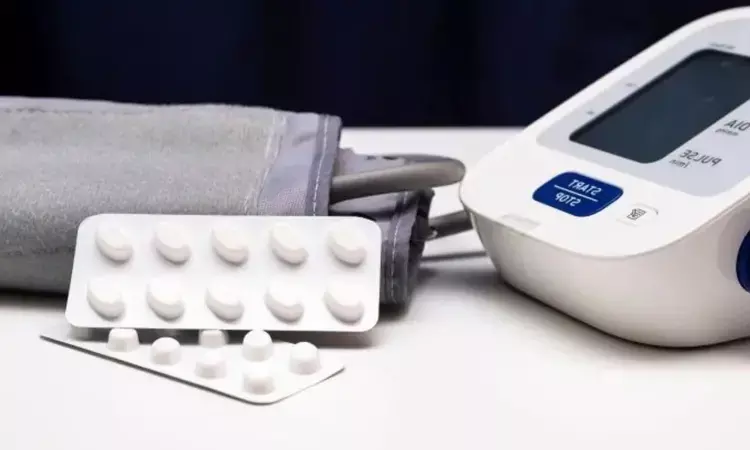- Home
- Medical news & Guidelines
- Anesthesiology
- Cardiology and CTVS
- Critical Care
- Dentistry
- Dermatology
- Diabetes and Endocrinology
- ENT
- Gastroenterology
- Medicine
- Nephrology
- Neurology
- Obstretics-Gynaecology
- Oncology
- Ophthalmology
- Orthopaedics
- Pediatrics-Neonatology
- Psychiatry
- Pulmonology
- Radiology
- Surgery
- Urology
- Laboratory Medicine
- Diet
- Nursing
- Paramedical
- Physiotherapy
- Health news
- Fact Check
- Bone Health Fact Check
- Brain Health Fact Check
- Cancer Related Fact Check
- Child Care Fact Check
- Dental and oral health fact check
- Diabetes and metabolic health fact check
- Diet and Nutrition Fact Check
- Eye and ENT Care Fact Check
- Fitness fact check
- Gut health fact check
- Heart health fact check
- Kidney health fact check
- Medical education fact check
- Men's health fact check
- Respiratory fact check
- Skin and hair care fact check
- Vaccine and Immunization fact check
- Women's health fact check
- AYUSH
- State News
- Andaman and Nicobar Islands
- Andhra Pradesh
- Arunachal Pradesh
- Assam
- Bihar
- Chandigarh
- Chattisgarh
- Dadra and Nagar Haveli
- Daman and Diu
- Delhi
- Goa
- Gujarat
- Haryana
- Himachal Pradesh
- Jammu & Kashmir
- Jharkhand
- Karnataka
- Kerala
- Ladakh
- Lakshadweep
- Madhya Pradesh
- Maharashtra
- Manipur
- Meghalaya
- Mizoram
- Nagaland
- Odisha
- Puducherry
- Punjab
- Rajasthan
- Sikkim
- Tamil Nadu
- Telangana
- Tripura
- Uttar Pradesh
- Uttrakhand
- West Bengal
- Medical Education
- Industry
Potassium magnesium citrate bests potassium chloride for Prevention of thiazide induced hyperglycemia

USA: A recent study published in Hypertension has shown potassium magnesium citrate (KMgCit) to be superior to potassium chloride (KCl) in preventing thiazide diuretic (TD)-induced hyperglycemia in patients with hypertension without diabetes. Potassium chloride is the common form of potassium supplement used in clinical practice.
Thiazide diuretics are the first-line hypertension treatment because of their consistent benefit in lowering blood pressure (BP) and cardiovascular (CV) risk. TD is also known to cause an excess diabetes risk, which may limit long-term use. Potassium depletion is suggested to be the main mechanism of TD-induced hyperglycemia, TD also triggers, but also triggers magnesium (Mg) depletion.
There has been no investigation of the role of Mg supplementation in modulating metabolic side effects of TD. Considering this, Wanpen Vongpatanasin, University of Texas Southwestern Medical Center, Dallas, TX, and colleagues aimed to determine the effect of KMgCit on fasting plasma glucose and liver fat by magnetic resonance imaging during thiazide diuretic therapy.
For this purpose, they conducted a double-blind RCT comprising 60 nondiabetic hypertension patients to compare the effects of KCl versus KMgCit during chlorthalidone treatment. Each patient received chlorthalidone alone for three weeks before randomization. The primary endpoint was the change in fasting plasma glucose following 16 weeks of KMgCit or KCl supplementation from chlorthalidone alone. The mean age of subjects was 59±11 years.
The study revealed the following findings:
- Chlorthalidone alone induced a significant rise in fasting plasma glucose, and a significant fall in serum K, serum Mg, and 24-hour urinary citrate excretion.
- KMgCit attenuated the rise in fasting plasma glucose by 7.9 mg/dL versus KCl, which was not observed with KCl.
- There were no significant differences in liver fat between the 2 groups.
"These findings suggest that potassium magnesium citrate may offer a superior alternative to potassium chloride, typically used in clinical practice, in maintaining serum potassium during thiazide-diuretic treatment while avoiding thiazide-induced hyperglycemia," the researchers wrote.
'This action may improve cardiovascular safety and tolerability in patients with hypertension treated with this drug class," they concluded.
Reference:
Vongpatanasin W, Giacona JM, Pittman D, Murillo A, Khan G, Wang J, Johnson T, Ren J, Moe OW, Pak CCY. Potassium Magnesium Citrate Is Superior to Potassium Chloride in Reversing Metabolic Side Effects of Chlorthalidone. Hypertension. 2023 Dec;80(12):2611-2620. doi: 10.1161/HYPERTENSIONAHA.123.21932. Epub 2023 Oct 17. PMID: 37846572.
Dr Kamal Kant Kohli-MBBS, DTCD- a chest specialist with more than 30 years of practice and a flair for writing clinical articles, Dr Kamal Kant Kohli joined Medical Dialogues as a Chief Editor of Medical News. Besides writing articles, as an editor, he proofreads and verifies all the medical content published on Medical Dialogues including those coming from journals, studies,medical conferences,guidelines etc. Email: drkohli@medicaldialogues.in. Contact no. 011-43720751


